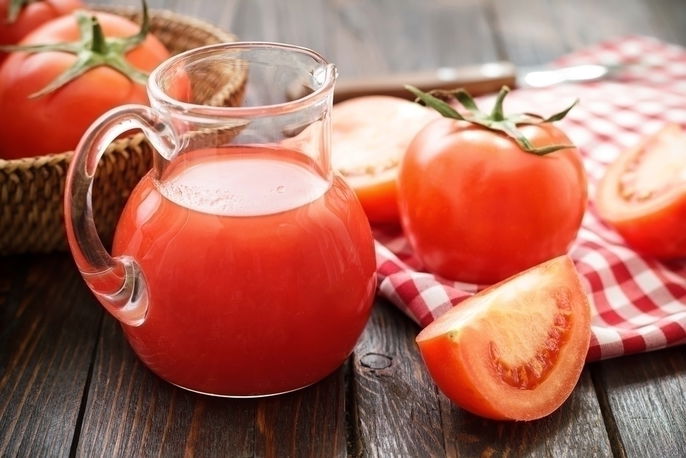Natural remedies for an enlarged prostate can be made with tomato juice, saw palmetto, nettle and pumpkin seeds. These ingredients have anti-inflammatory and antioxidant properties that help reduce prostate inflammation and prevent cancer.
An enlarged prostate is a common condition in men over 50 years of age. It can cause symptoms such as difficulty urinating, a weak urine stream, dripping urine at the end of urination and feeling like the bladder is always full. Learn more about the symptoms of an enlarged prostate and check-out our online symptom checker to determine your risk for this condition.
These natural remedies do not replace the treatment prescribed by your doctor, and can, instead, be used to complement your prescribed treatment.

Natural remedies
Home remedies for an enlarged prostate include:
1. Saw palmetto extract
A good natural remedy for an enlarged prostate is take saw palmetto extract. This medicinal plant has anti-estrogenic properties that help fight benign prostatic hyperplasia, which is one of the main causes of an enlarged prostate.
Ingredients
- 1 teaspoon of powdered saw palmetto extract
- 125 ml of water
Directions
To prepare this natural remedy, place 1 teaspoon of saw palmetto powder in a glass of water, stir to dissolve and take twice a day.
Saw palmetto can also be consumed in capsule form, which is more practical and easier. You can consume one capsule of 160 mg, twice a day, after breakfast and dinner, or as prescribed by your doctor.
The supplement is contraindicated for people with blood clotting disorders, such as hemophilia, liver diseases, such as liver failure, or pancreatic problems, such as pancreatitis.
Furthermore, it should also not be consumed by people who use anticoagulants, such as warfarin, acetylsalicylic acid or clopidogrel. It should also not be used with plants or medicinal supplements that interfere with clotting, such as ginger, ginkgo biloba, ginseng, turmeric. and clove.
2. Tomato juice
To promote prostate health, you can consume tomato juice on a daily basis. It contains vitamin C, folic acid, iron and other minerals, as well as lycopene, which helps to fight prostate inflammation. These properties make tomatoes a functional food.
Ingredients
- 2 to 3 ripe tomatoes
- 250 ml of water
Directions
To make tomato juice, blend the tomatoes in a blender with around 250 ml of water and drink one glass of this mixture per day.
This tomato juice is a great option for men who have a family history of prostate cancer and should be seen as a daily dietary supplement to complement medical treatment. Treatment for an enlarged prostate usually involves the use of medications, while some cases may require surgery.
3. Nettle capsules
Nettle is an excellent plant to treat an enlarged prostate, as it contains substances that reduce the enzymes responsible for inflammation of this gland. It also helps to regulate testosterone levels. This plant can reduce prostate size and relieve symptoms it is causing, especially difficulty urinating.
Also recommended: Top 8 UTI Symptoms in Men (plus How It’s Diagnosed and Treated) tuasaude.com/en/urinary-tract-infection-in-menHow to take: to treat prostate inflammation, you can consume 120 mg of nettle root capsules, 3 times a day after meals, or as directed by your doctor.
This plant can also be consumed in the form of tea. This prepare is by adding one tablespoon of dried nettle leaves to one cup of boiling water, then letting this infuse for ten minutes. Strain and drink while still warm. Learn more about the health benefits of nettle tea.
The use of nettle is contraindicated for people with heart problems and kidney failure.
4. Pumpkin Seeds
Pumpkin seeds are another popular natural remedy to treat prostate problems. They contain anti-inflammatory and antioxidant substances that, in addition to treating prostate inflammation also prevent the development of cancer.
How to consume: to obtain these benefits you must eat 10 grams of pumpkin seeds every day, which can be added to salads, yogurts or cereal. It is also possible to use pumpkin seed oil when preparing meals, using approximately two tablespoons per day.






























